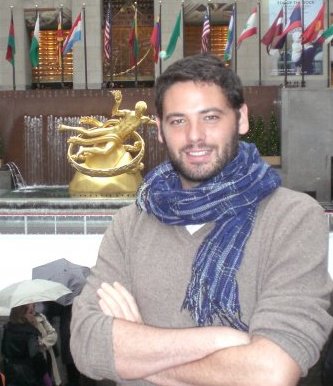Lecture: «Single-molecule analysis of proteins with nanopore technology»

Dr. David Rodríguez-Larrea (Ramón y Cajal Fellow - University os Basque Country - UPV-EHU)
CiQUS Seminar Room - 10:00 h
 Nanopore technology measures the ionic current passing through narrow (nanometer wide) holes made in an insulating membrane, and how molecules rectify this current when they traverse the nanopore. This technology is being used as a new tool to sequence DNA or to follow the chemical reaction of a single-molecule in real time. More recent developments aimed to expand its analytic capabilities to study proteins. Its relevance is justified by two reasons: 1) because it mimics natural processes: in vivo protein synthesis and degradation occurs mainly through nanometer sized pores; and 2) because it promises powerful biotechnological applications: from single-molecule protein sequencing to high-throughput drug screening. That lecture will explain the basis of the technology and its implementation into proteins. Later, recent advances in the study of vectorial protein unfolding and folding will showed and, finally, how nanopore technology can be used in phosphoproteomics and in drug screening.
Nanopore technology measures the ionic current passing through narrow (nanometer wide) holes made in an insulating membrane, and how molecules rectify this current when they traverse the nanopore. This technology is being used as a new tool to sequence DNA or to follow the chemical reaction of a single-molecule in real time. More recent developments aimed to expand its analytic capabilities to study proteins. Its relevance is justified by two reasons: 1) because it mimics natural processes: in vivo protein synthesis and degradation occurs mainly through nanometer sized pores; and 2) because it promises powerful biotechnological applications: from single-molecule protein sequencing to high-throughput drug screening. That lecture will explain the basis of the technology and its implementation into proteins. Later, recent advances in the study of vectorial protein unfolding and folding will showed and, finally, how nanopore technology can be used in phosphoproteomics and in drug screening.
Research line
This research line is focused in nuclear and cytosolic chaperones. Among the cytosolic chaperones, the group is interested in members of the Hsp60, Hsp70 and Hsp100 families. In particular, the analysis of the functional cycle of these proteins and how they interact with substrates and modulate their conformation.
They are also trying to understand how Hsp70 and Hsp100 proteins collaborate, forming a productive network, to disaggregate and refold cellular protein aggregates. Among nuclear chaperones they focus on nucleoplasmin, a histone-chaperone involved in the exchange of basic proteins bound to DNA and therefore in the regulation of the condensation state of chromatin. In particular, the group is interested in the nucleoplasmin-mediated histone exchange mechanism.


